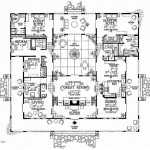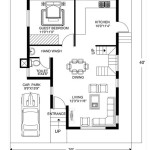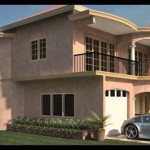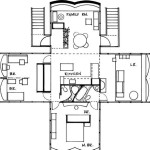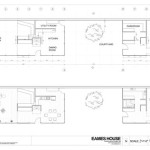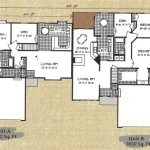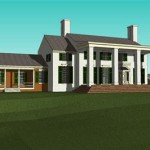Modern House Plans: Essential Aspects of Energy Efficiency
In today's eco-conscious world, energy efficiency has become a crucial consideration in modern house plans. Implementing energy-saving features not only reduces environmental impact but also offers substantial cost savings in the long run. Here are some essential aspects to keep in mind when designing an energy-efficient modern home:
1. Insulation: A Barrier Against Heat Transfer
Proper insulation is essential for minimizing heat gain and loss. Consider using high-performance insulation materials such as cellulose, fiberglass, or spray foam to reduce thermal bridging and create a more stable indoor temperature throughout the seasons.
2. Energy-Efficient Windows and Doors
Windows and doors are often major sources of heat leakage. Opt for ENERGY STAR-certified windows with double or triple glazing, low-emissivity (Low-E) coatings, and airtight seals. Similarly, choose well-insulated doors with weatherstripping and thresholds to prevent air infiltration.
3. Passive Solar Design: Harnessing Nature's Power
Design your home to take advantage of natural sunlight. Large south-facing windows allow for passive solar heating during winter, while strategically placed overhangs prevent excessive heat gain in summer. Passive solar design can significantly reduce reliance on artificial heating and cooling systems.
4. High-Efficiency HVAC Systems
Heating, ventilation, and air conditioning (HVAC) systems account for a significant portion of home energy consumption. Choose energy-efficient HVAC systems with high SEER (Seasonal Energy Efficiency Ratio) ratings for cooling and high HSPF (Heating Seasonal Performance Factor) ratings for heating. Consider using a geothermal heat pump system to take advantage of the earth's relatively stable temperature.
5. LED Lighting and Smart Controls
Light-emitting diodes (LEDs) are highly energy-efficient and can significantly reduce lighting expenses. Install LED light fixtures throughout the home and equip them with smart controls, such as motion sensors and dimmers, to optimize energy consumption.
6. Energy-Star Appliances
When selecting appliances, look for ENERGY STAR-rated models that meet strict efficiency standards. This includes refrigerators, dishwashers, washing machines, and dryers. Energy-Star appliances can save considerable amounts of energy over their lifetime.
7. Solar Energy Integration
Consider incorporating solar panels into your home's design. Solar photovoltaic (PV) systems convert sunlight into electricity, which can offset your energy consumption from the grid. Installing solar panels can provide long-term financial savings and contribute to a cleaner energy future.
8. Smart Home Technologies
Smart home technologies, such as programmable thermostats and energy monitoring systems, can provide insights into your home's energy consumption patterns. By using these tools, you can make informed decisions to optimize energy usage and reduce waste.
By incorporating these essential aspects into your modern house plans, you can create an energy-efficient home that promotes sustainability, reduces environmental impact, and saves you money on utility bills.

Cool Energy Efficient Concrete House Plans Houseplans Blog Com

Building An Energy Efficient House Houseplans Blog Com
Seven Efficient And Flexible Floor Plans Builder

Home For Life Energy Efficient House Design Passive Plans

Energy Efficient House Plans Home Designs The Designers

Energy Efficient Modern Style House Plan 4813 Southwest Bliss

Home Designs Fsec

Energy Efficient Home Plans Ekobuilt

Energy Efficient House Plans Home Designs The Designers

Stylish Sydney House Gets A Sustainable And Energy Efficient Extension Decoist

